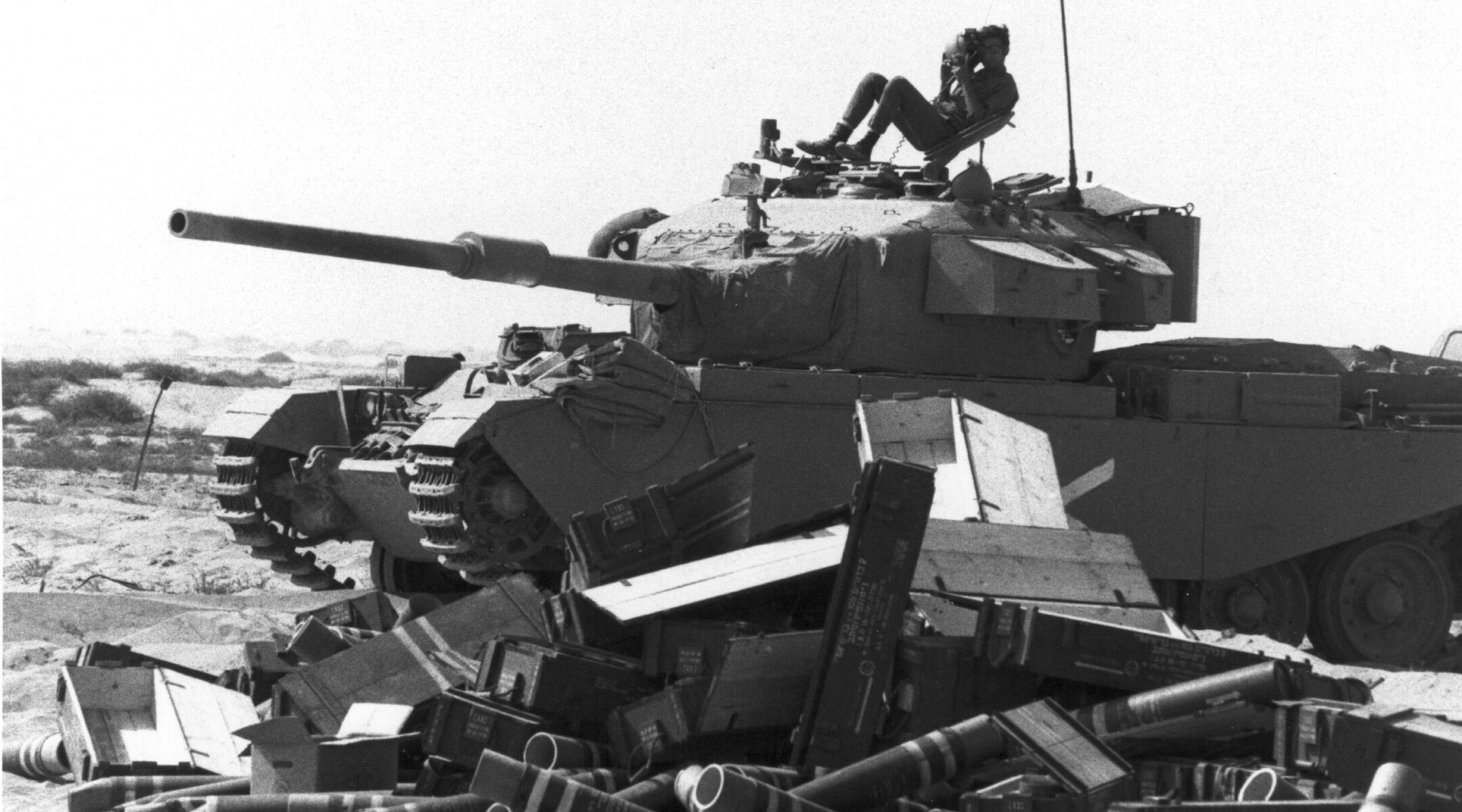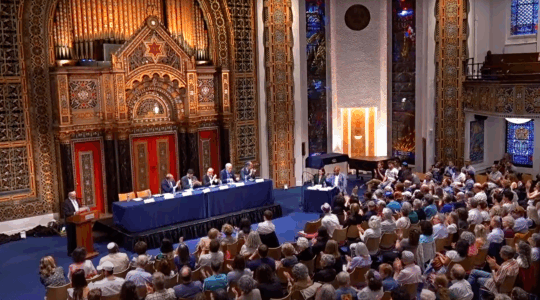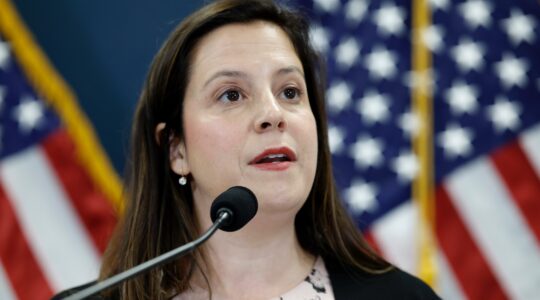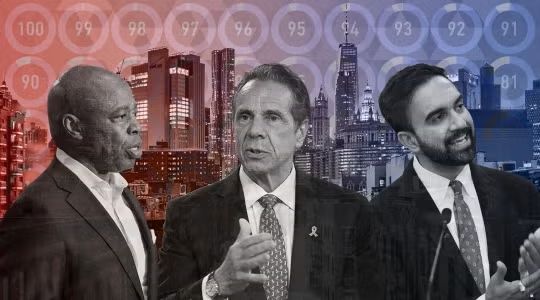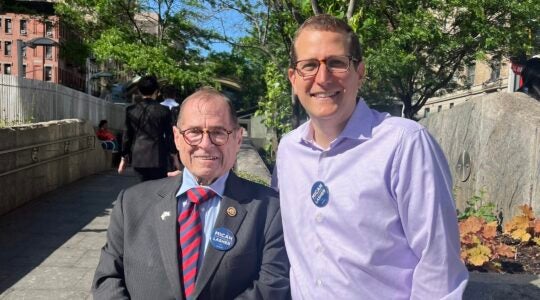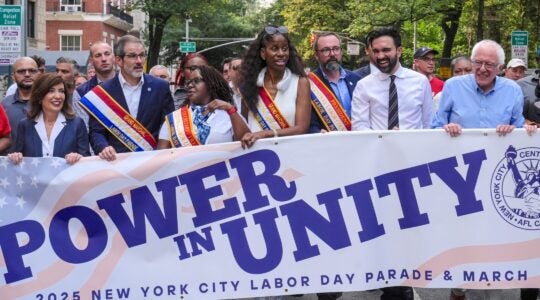(JTA) — Israelis were not sure their country would survive. American Jews were not sure how to respond.
Fifty years after the Yom Kippur War — which broke out on the holiest day of the Jewish calendar in 1973 and lasted for about three weeks — some of those who lived through that time are seeing another crisis play out again in the present day, as Israelis have been locked in civil strife over their government’s effort to weaken the Supreme Court.
But those who remember the 1973 war say there are two major differences between now and then: The threat to Israel today is not existential, they say, nor is it external. This year, Israelis are fighting amongst themselves.
In interviews, four veterans of the war and a Jewish American official who was at the center of his community’s response to it recalled vivid memories of the events, and spoke about the war’s echoes in the present day, as masses of Israelis see a threat to Israel’s democracy in the government’s proposed judicial overhaul. The Israelis who support the overhaul say that it will curb an activist judiciary and allow the elected government to better represent its right-wing base.
A government failed
Israelis were caught off-guard by the war, in part because their leaders did not heed the warnings from some intelligence officials who saw the Egyptian and Syrian armies build up forces that were poised to attack. The armies were positioned on the borders of the Sinai Desert and Golan Heights, territories Israel had captured in the 1967 Six-Day War.
“Israel was not prepared, in many ways we did not have military answers,” said Itzhak Brook, an Israeli physician who was serving in the military, attached to a supply battalion in the Sinai. “I think a lot of it was arrogance, a society that felt we were invincible, the euphoria that happened after the Six-Day War.”
Hillel Schenker, who was deployed to the Golan Heights to lay mines, said the anger at the country’s leadership was soon expressed in the streets — presaging the Israel of 2023.
“Soon there were thousands of people joining the protests against [Defense Minister Moshe] Dayan,” he said. “And soon there were thousands of people joining the protest against Dayan and to a degree also against Golda” Meir, then the Israeli prime minister. The protests eventually helped bring down Meir’s government and led to her replacement by Yitzhak Rabin.
The resonance in the United States
The three Americans who were among the veterans interviewed by the Jewish Telegraphic Agency said communicating within Israel during the war was a challenge — and staying in touch with relatives in the United States was much harder. They did not know until after the war how traumatized the American Jewish community was.
Allan Feldman, who was a sapper, tracking and destroying explosive ordnance, recalled that his mother in Baltimore managed to get through to him at a time when making a call often meant walking a considerable distance to pick up the phone.
“I’m an only child, and I had a hysterical mother,” he recalled. “So we were in touch.”
Abe Foxman, then a senior official in the Anti-Defamation League, which he would later lead for nearly three decades, said the American Jewish community was beside itself at the time.
“After ‘67, there was this euphoria, and after ‘73, there was this sadness, this pallor,” he said. “There was just this traumatic moment that God forbid, we could have lost Israel.”
Brook, who was born in Israel and who left eight months after the war to pursue a medical fellowship in the United States, said he was taken aback when he arrived stateside: American Jews had been traumatized, but with the passage of time it was no longer as immediate as it had been for Israelis.
“Many American Jews did not understand what Israel went through or what I went through,” he said. He wrote a book about his experiences, called “In the Sands of Sinai: A Physician’s Account of the Yom Kippur War.” He has delivered more than 200 lectures in person and via video chat to sustain the memory of the war.
A war that forever changed lives and a country
“Three weeks before the war, I did an idyllic tour of reserve duty in Dahab in the Sinai for a month,” Schenker recalled, referring to the Red Sea coastal resort that was, while it was under Israeli rule, a hub for alternative lifestyles. “We had no sense, no inkling that a war was coming.”
Schenker, who was from New York, had connections to the city’s folk scene and ambitions of launching a singing career in Israel, or perhaps pursuing a career in academia.
“The Yom Kippur War totally transformed, eliminated those paths and what happened to me is that I said, now the major challenge that I have and that my generation has is to try to achieve peace to prevent another outbreak like this one,” he said. He became a peace activist, helping to establish the activist group Peace Now, which grew to become one of Israel’s leading left-wing nonprofits.
Feldman said he was pleased that he avoided serving in the U.S. military’s war in Vietnam, and was ready to serve in Israel’s army. But he did not anticipate how much the country would change as a result of the war — becoming in his view more militaristic, more religious and more committed to West Bank settlement. He sees those trends in the present day.
“This is not the Zionist dream that I had,” he said. “What is going on with the extreme right wing government. I’m too worried about where Israel is going to worry about where it has been.”
Dave Holtzer, who served on guard duty during the war, also sees worrying resonances today.
“Then, it was a threat because the Syrians were going to kill us all,” Holtzer said. “Here, they’re not going to kill us, they’re just going to take away our democracy.
Brook, in his presentations to Jewish communities, describes the moment that he knew Israel would change forever.
“We evacuated a group of soldiers to a field hospital and as I walked out, I saw the sight of a hospital tent and a row of stretchers,” he said in a presentation he prepared in 2020 and shared with JTA. “Each of them was covered with a blanket. All you could see was shoes. Some were brown — paratroopers; some were black — armored corps or artillery.”
He recalled thinking, “The families of those men don’t know, and in a few hours someone will knock on their door and change their lives forever.”
As much as memorializing the Yom Kippur war has preoccupied him, Brook says he perceives a different and in some ways graver threat now.
“The threat to Israel is not so much from the militaries of the major Arab countries, the threat is the nuclear threat from Iran, the terror from Gaza and Lebanon, and also the internal strife in Israel because of the controversy over the judicial system,” he said. “That threat is even greater than the war — in war everyone is united, right now Israelis are divided.”
American Jews are more invested now
Instantaneous communication means that American Jews are more likely to be invested in the current crisis, Holtzer said.
“People ask what’s going on, they’re in touch everyday,” said Holtzer.
Feldman marvels at how he is in daily contact with his Israeli-raised son, who lives in the United States. “We talk almost every day on the laptop or you know, we see him and the kids on the screens,” he said.
Schenker said his American friends and family have an immediate sense of the crisis. “We didn’t have WhatsApp or Zoom or anything else,” he said. “My daughter in New York sends me photos of herself, demonstrating against Netanyahu.”
JTA has documented Jewish history in real-time for over a century. Keep our journalism strong by joining us in supporting independent, award-winning reporting.
